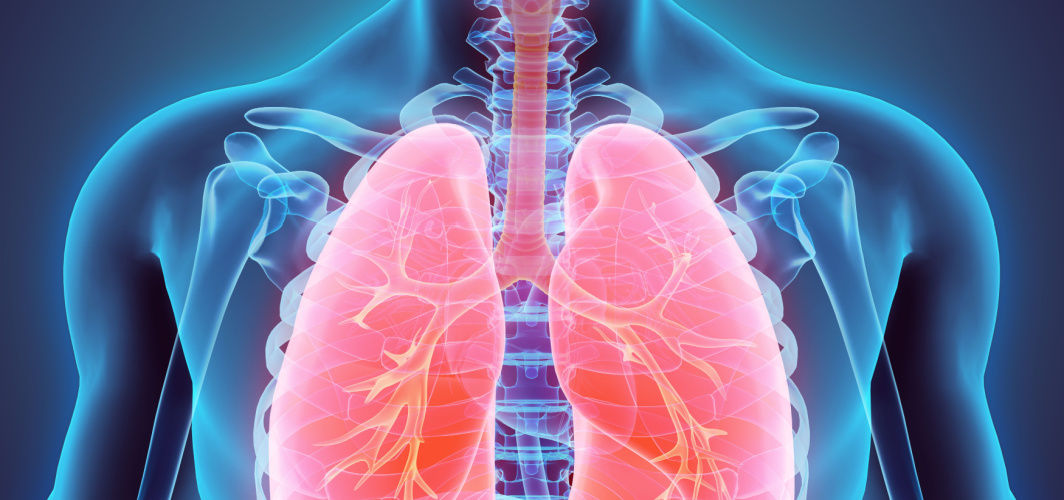Respiratory Health
Types of Asthma: Classification & Severity
7 min read
By Apollo 24|7, Published on - 19 October 2023
Share this article
0
0 like

Asthma is a chronic respiratory condition that affects a significant portion of the Indian population. It is characterised by inflammation and narrowing of the airways, leading to symptoms like wheezing, coughing, and shortness of breath. Asthma can be classified into different types and can vary in severity. The severity of asthma is determined by the frequency and intensity of symptoms, as well as the lung function test results. With proper management and adherence to treatment guidelines, individuals with asthma can lead normal lives and minimise the impact of this condition on their daily activities. Let's learn more about the types of asthma and how to deal with its symptoms.
What is Asthma?
Asthma is a chronic respiratory condition that causes inflammation and constriction of the airways, leading to breathing difficulties. It is a complex condition that can vary in severity and symptoms from person to person. According to The Global Initiative for Asthma (GINA), asthma is classified into four main categories:
- Intermittent Asthma: It is the mildest form of asthma. People with this type experience symptoms for less than two days a week and may have nighttime symptoms for less than two nights a month.
- Mild Persistent Asthma: It is characterised by symptoms occurring more than twice a week. Night-time symptoms are experienced more than two nights a month but not every night.
- Moderate Persistent Asthma: In this type, symptoms occur daily, and night-time symptoms are present more than once a week.
- Severe Persistent Asthma: This is the most severe form of asthma, with symptoms occurring throughout the day and nighttime symptoms occurring frequently.
Types of Asthma Based on Triggers
Based on triggers, the different types of asthma include:
1. Allergic Asthma
Allergic asthma is a type of asthma triggered by exposure to allergens. Allergens are substances like dust mites, pollen from plants, pet dander, mould spores or cockroach droppings that can cause an allergic reaction in some individuals, including asthma symptoms.
Individuals with allergic asthma need to identify their specific triggers and take steps to avoid or minimise exposure to them. Some of these steps include:
- Keep the home clean and free of dust by regularly vacuuming and dusting surfaces.
- Use allergen-proof covers on mattresses and pillows to help reduce exposure to dust mites.
- Keep windows closed during peak pollen seasons & use air purifiers to filter out allergens from the air.
2. Non-allergic Asthma
Non-allergic asthma is a type of asthma that is not triggered by allergens. Instead, it is triggered by non-allergic factors such as:
- Exercise
- Cold air
- Stress
To manage non-allergic triggers, it is important to take suitable preventive measures like warming up before exercise, wearing a scarf in cold weather, and practising stress management techniques.
What is Occupational Asthma?
Occupational asthma refers to a type of asthma triggered by substances present in the workplace environment. Some common triggers include dust, chemicals, or fumes. It is important to note that not everyone working in these industries will develop occupational asthma, as individual susceptibility plays a role.
1. Who is at risk for occupational asthma?
Several industries and professions in India are known to be associated with an increased risk of developing occupational asthma. People working in the following could be at higher risk of developing asthma:
- Manufacturing and production industries such as textile factories, chemical plants, woodworking shops, and food processing units
- Healthcare workers who are exposed to latex gloves or sterilising agents like glutaraldehyde and formaldehyde
- Agricultural workers who handle grains or farm animals
2. Importance of Early Detection and Prevention in the Workplace
If you suspect that you are developing asthmatic symptoms due to your workplace, it is important to consult a doctor for a proper diagnosis. Once diagnosed, steps should be taken to minimise exposure to the triggering substances. This may involve:
- Wearing protective gear like masks
- Utilising ventilation systems
- Regular monitoring and follow-ups
What is Childhood Asthma?
According to recent studies, the prevalence of asthma in children has been on the rise in our country. This condition can significantly impact a child's quality of life, hence, it is essential to raise awareness about its prevalence to ensure early diagnosis and effective management.
1. Risk Factors and Causes of Childhood Asthma
While asthma can occur at any age, there are specific risk factors and causes that are more prevalent in the paediatric population.
- Genetic predisposition plays a significant role, as children with a family history of asthma are more likely to develop the condition themselves.
- Exposure to environmental allergens can also trigger asthma symptoms.
- Other risk factors include respiratory infections during infancy, exposure to tobacco smoke or air pollution, and premature birth.
2. Management Strategies for Children with Asthma
Parents play a crucial role in recognising and monitoring asthma symptoms in their children. They should work closely with doctors to develop an asthma action plan. The management of childhood asthma usually involves a combination of medication and lifestyle adjustments.
- Medications such as bronchodilators and corticosteroids are commonly prescribed to control symptoms and prevent asthma attacks.
- Different types of inhalers containing medicines like budesonide and beclomethasone are often used as they deliver the medication directly into the lungs, providing quick relief and reducing side effects.
- Lifestyle adjustments like avoiding triggers such as allergens or irritants are crucial. Maintaining good indoor air quality by regularly cleaning the house and using air purifiers can also make a significant difference.
What is Severe Asthma?
Severe asthma is a subtype of asthma characterised by persistent symptoms, frequent exacerbations, and poor response to standard treatment. It affects a small percentage of individuals with asthma but can have a significant impact on their quality of life.
Individuals with severe asthma may experience more frequent and severe symptoms.
How to manage severe asthma?
Managing severe asthma poses unique challenges due to its complex nature. One of the main challenges is achieving symptom control despite aggressive treatment.
- Individuals with severe asthma may require multiple medications, including high-dose inhaled corticosteroids and oral corticosteroids.
- Biologic therapies have also emerged as a promising option for individuals who do not respond well to conventional treatments. These therapies have shown positive results in reducing asthma exacerbations and enhancing overall quality of life.
Asthma Exacerbations and Emergency Care
Recognising the warning signs of an impending asthma exacerbation is crucial for asthmatics to manage their condition effectively. These warning signs may include shortness of breath, wheezing, chest tightness, and persistent coughing. Understanding your triggers can also assist in recognising warning signs promptly.
1. Steps to Take During an Asthma Attack
During an asthma attack, follow these steps to manage the situation effectively:
- Stay calm and try to relax your breathing
- Take slow, deep breaths while focusing on exhaling fully
- If you have a rescue inhaler, use it as prescribed by your doctor
- Avoid triggers and irritants and find a quiet place to rest until help arrives
2. When to Seek Emergency Medical Care?
Seek emergency care immediately if you experience any of the following symptoms:
- Severe shortness of breath that limits your ability to speak or walk
- Bluish lips or face indicating oxygen deprivation
- Rapid breathing that doesn't improve with medication
- Chest pain
- Confusion or a feeling of extreme anxiety
One should have an asthma action plan, which includes personalised instructions on how to manage your asthma, including triggers to avoid, daily medications, and steps to take during an exacerbation. This plan helps you recognise early warning signs and outlines when to seek emergency medical care.
Lifestyle Modifications for Asthma Management
lifestyle changes that may help manage asthma include:
1. Maintain a healthy weight
Being overweight or obese can worsen asthma symptoms and increase the risk of asthma attacks. Regular exercise, on the other hand, helps strengthen the lungs and improves overall lung function. Aim to achieve a healthy body weight through a balanced diet and regular physical activity.
2. Change your diet
Include anti-inflammatory foods in your diet, such as fruits, vegetables, whole grains, and fatty fish rich in omega-3 fatty acids. Additionally, identify and avoid potential triggers like allergenic foods (dairy, eggs, shellfish) or food additives.
3. Create an Allergen-Free Environment at Home
Keep your home clean and use allergy-proof covers on pillows and mattresses. Minimise indoor humidity and consider using air purifiers to filter out allergens.
4. Manage Stress
Stress can trigger or worsen asthma symptoms in some individuals. Learning effective stress management techniques is vital for better asthma control. Practices like deep breathing exercises, meditation, or yoga can help reduce stress levels and promote relaxation.
Takeaway
Individuals with asthma should work closely with doctors to develop an optimal management plan. This includes regular check-ups, monitoring symptoms, and using different types of inhalers for immediate relief during an asthma attack.
Respiratory Health
Consult Top Pulmonology Respiratory Medicine Specialists
View AllFrequently Asked Questions
Can asthma develop later in life?
Can asthma develop later in life?
Are there different types of asthma?
Are there different types of asthma?
What are the different types of inhalers available for asthma?
What are the different types of inhalers available for asthma?
Is it safe to use a peak flow meter?
Is it safe to use a peak flow meter?
Can a person have more than one type of asthma?
Can a person have more than one type of asthma?
Leave Comment
Recommended for you

Respiratory Health
Adenovirus Wreaking Havoc In Kolkata. Know All About The Virus!
India has seen a recent spike in adenovirus cases, especially in the state of West Bengal. Adenovirus is a group of common viruses that lead to cold, cough and fever. Adenoviruses do not have any specific antiviral treatment but they can be prevented by following set measures built around a healthier and more hygienic lifestyle.

Respiratory Health
Rare Lung Diseases: Types, Causes & Treatment
Discover the different types of rare lung diseases, their causes, and the latest treatments available. Stay informed about the advancements in medical guidelines and lifestyle factors that can help manage these conditions effectively.

Respiratory Health
Could There Be More to Your Snore?
Most people snore at some point in their life and this usually does not bear any risk. However, if it becomes frequent, it may indicate an underlying problem.
Subscribe
Sign up for our free Health Library Daily Newsletter
Get doctor-approved health tips, news, and more.
Visual Stories

Managing COPD During the COVID-19 Pandemic
Tap to continue exploring
Recommended for you

Respiratory Health
Adenovirus Wreaking Havoc In Kolkata. Know All About The Virus!
India has seen a recent spike in adenovirus cases, especially in the state of West Bengal. Adenovirus is a group of common viruses that lead to cold, cough and fever. Adenoviruses do not have any specific antiviral treatment but they can be prevented by following set measures built around a healthier and more hygienic lifestyle.

Respiratory Health
Rare Lung Diseases: Types, Causes & Treatment
Discover the different types of rare lung diseases, their causes, and the latest treatments available. Stay informed about the advancements in medical guidelines and lifestyle factors that can help manage these conditions effectively.

Respiratory Health
Could There Be More to Your Snore?
Most people snore at some point in their life and this usually does not bear any risk. However, if it becomes frequent, it may indicate an underlying problem.



